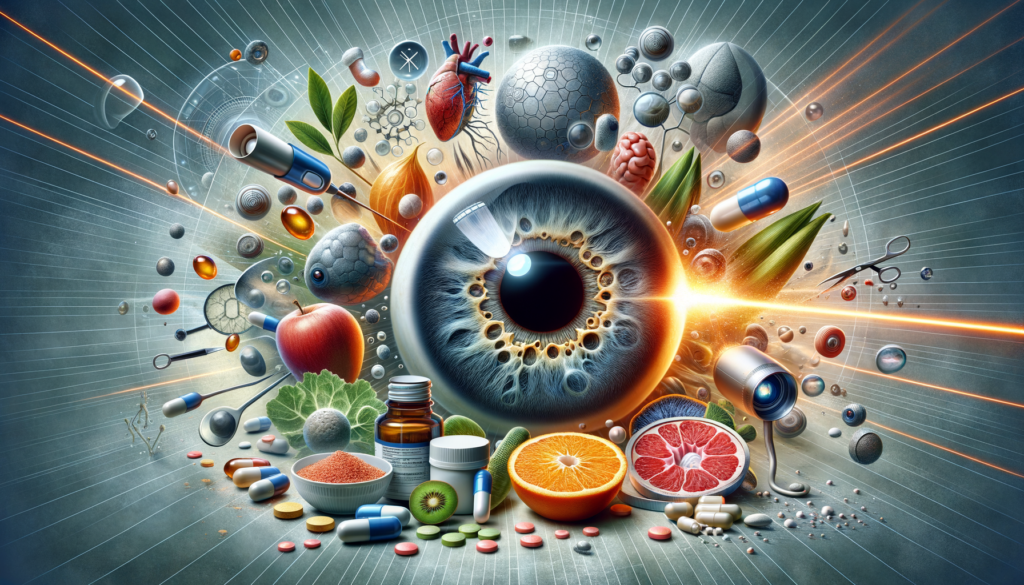The Fashion Blog

Macular degeneration: warning signs, helpful supplements, and available therapy
Introduction to Macular Degeneration
Macular degeneration is a prevalent eye condition that primarily affects older adults, leading to vision loss in the center of the visual field. This condition, often associated with aging, can significantly impact daily life, making tasks like reading and recognizing faces challenging. Understanding its warning signs, potential supplements, and available therapies is crucial for managing and potentially mitigating its effects.
Macular degeneration is categorized into two main types: dry and wet. The dry form is more common and progresses slowly, while the wet form can lead to rapid vision loss. Early detection and intervention are vital, as they can slow progression and help maintain quality of life.
Recognizing the Warning Signs
Identifying the early warning signs of macular degeneration is essential for timely intervention. Common symptoms include blurred or fuzzy vision, dark or empty areas in the center of vision, and difficulty adapting to low light levels. As the condition progresses, straight lines may appear distorted or wavy, a symptom known as metamorphopsia.
Regular eye examinations are crucial, especially for individuals over the age of 50 or those with a family history of the condition. Eye care professionals can detect early signs through comprehensive eye exams, which may include tests like optical coherence tomography (OCT) and fluorescein angiography.
Being proactive about eye health can make a significant difference. Lifestyle changes, such as quitting smoking, wearing sunglasses to protect against UV rays, and maintaining a healthy diet rich in leafy greens and fish, can also contribute to eye health and potentially delay the onset of macular degeneration.
Helpful Supplements for Eye Health
Dietary supplements can play a supportive role in managing macular degeneration. The Age-Related Eye Disease Study (AREDS) has shown that specific vitamins and minerals can slow the progression of the disease. These include high doses of antioxidants, such as vitamin C and E, along with zinc and copper.
Another supplement that has gained attention is lutein, a carotenoid found in leafy greens and other vegetables. Lutein is known for its potential to improve or maintain eye health by filtering harmful blue light and providing antioxidant protection.
While supplements can be beneficial, they should not replace a balanced diet. It’s important to consult with a healthcare provider before starting any new supplement regimen, especially for individuals with existing health conditions or those taking other medications.
Available Therapies and Treatments
Several therapies and treatments are available for managing macular degeneration, particularly for the wet form, which can progress rapidly. Anti-VEGF (vascular endothelial growth factor) injections are a common treatment that helps reduce abnormal blood vessel growth and leakage in the eye.
For those with dry macular degeneration, treatment options are more limited, but ongoing research is exploring potential therapies. Currently, management focuses on lifestyle changes and monitoring to slow progression.
Emerging treatments, such as gene therapy and stem cell research, show promise for the future. These innovative approaches aim to address the underlying causes of macular degeneration and potentially restore vision. However, these treatments are still in experimental stages and require further research to determine their long-term efficacy and safety.
Conclusion: Enhancing Eye Health and Quality of Life
Macular degeneration is a significant health concern that can affect quality of life, but understanding its warning signs, utilizing helpful supplements, and exploring available therapies can empower individuals to manage the condition effectively. Regular eye exams and a proactive approach to eye health are crucial steps in preserving vision.
While there is currently no cure for macular degeneration, advancements in research and treatment offer hope for better management and potential future therapies. Staying informed and working closely with healthcare providers can help individuals navigate the challenges of macular degeneration and maintain a fulfilling life.









